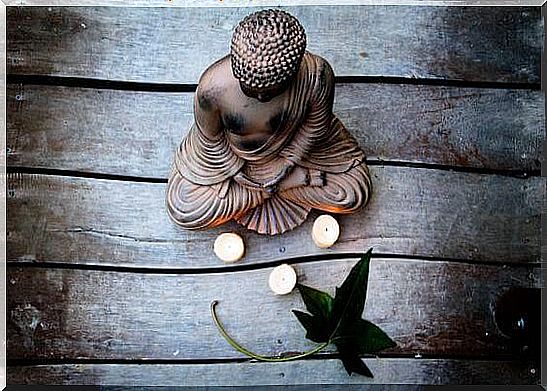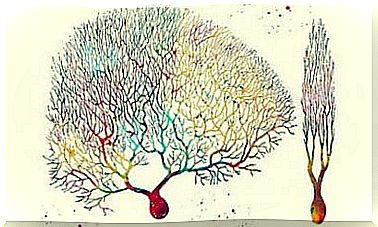7 Buddhist Keys To Face Difficult Times

Facing difficult times takes more than good will / attitude; however, this can help a lot if necessary. Life itself does not follow an easy script to interpret. Contradiction, deficiencies, unsatisfied desires are elements of the everyday landscape. A trait of neurosis is thinking that one has problems, but the others do not.
Buddhists have a different way of looking at problems . Unlike Westerners, they do not insist on denying them or trying to get out of them as soon as possible. Their attitude is more adaptive and that is why they have important keys to face difficult moments.
There are situations and situations. It is one thing to deal with a mobile that does not work and another to have to deal with a divorce, or the death of a loved one. However, Buddhists teach us that both situations are an opportunity to develop indispensable skills, those that help us face difficult moments later. This is what they recommend.
1. Don’t fight the current
Don’t do it, especially if the current is strong. A smart way to deal with difficult times is not to oppose them . When there are adverse circumstances, the temptation to expend too much energy trying to avoid the inevitable is great.
Accepting is one of the great steps to solve a problem, the first to recognize its limits. Admit that things are the way they are, no matter how much they contradict our wishes. That acceptance saves us wasted effort and puts us in a more realistic and positive perspective.

2. Look inside, a beginning to face difficult moments
It’s easy to be tempted to explain complicated situations based on external factors. It is true that many difficulties are influenced by factors beyond our control. However, it is us and only we who choose the way in which we will respond.
In every situation , however difficult it may be, there is always something we can do, particularly in our inner world. Before looking to blame or accusing fortune of turning its back on us, let’s try to answer the question of how to open a space within us to these difficult experiences so that they do not contaminate us.
3. Every mistake or deprivation entails learning
In order to face difficult moments, let’s try to stop seeing them as something undesirable, worthy of being eradicated as soon as possible. Quite the opposite. Often times, extreme ease or extreme comfort only makes us puff up.
A difficult situation is always an opportunity to learn. Either about ourselves or about external reality. Pain reveals new facets of life, of ourselves or of those around us. It is important to value this.
4. What must happen happens
Everything that happens is the result of multiple factors that have come together to make it so. Just as no great triumph comes without reasons, neither does a difficulty or a loss arise for its own sake. The world works as it should.
Now is a synthesis of yesterday. Every fact and every human being is the fruit of everything that precedes it. Therefore, what should happen happens, not better, not worse, only what should be. If we can visualize the events from that perspective, we can accept them and integrate them better into our personal history.
5. It’s now, not later
Difficult situations are in themselves a call for change. There is a mistake, or a wrong perspective, or some action that has resulted in a situation that we experience as problematic.
Therefore, the most appropriate thing is to bring about changes within ourselves, here and now. It is not advisable to wait for the storm to pass to take appropriate measures. It is in the middle of a storm when we must mobilize our resources to cope with it.

6. Find the way to laughter
The best antidote to hopelessness and pessimism is laughter. This is much more valuable in those moments when all the doors seem closed, or the problems seem to overwhelm our capacity to assume them.
In such situations, laughter equates to a blessing. It is likely that this does not arise spontaneously and, therefore, it is necessary to look for it. What situations lead you to smile? These are the situations that you should address.
7. Don’t allow yourself to be victimized
Victimization grants a certain enjoyment to those who use it. It generates profits, but these are false. It means giving up the aspiration to assume overall control, to try to implement effective coping strategies with the resources we have.
Victimizing yourself only prolongs difficulties and takes away your autonomy. In the long run, it does not solve anything, but on the contrary, it contributes to you stagnating. It is not a reasonable option, since in the long term it will only bring you more and more limitations.
The most important thing about these Buddhist tips for coping with difficulties is that they are sound criteria for fostering patience, strengthening the power we have over ourselves, and tolerating bad times, making the best of them.









